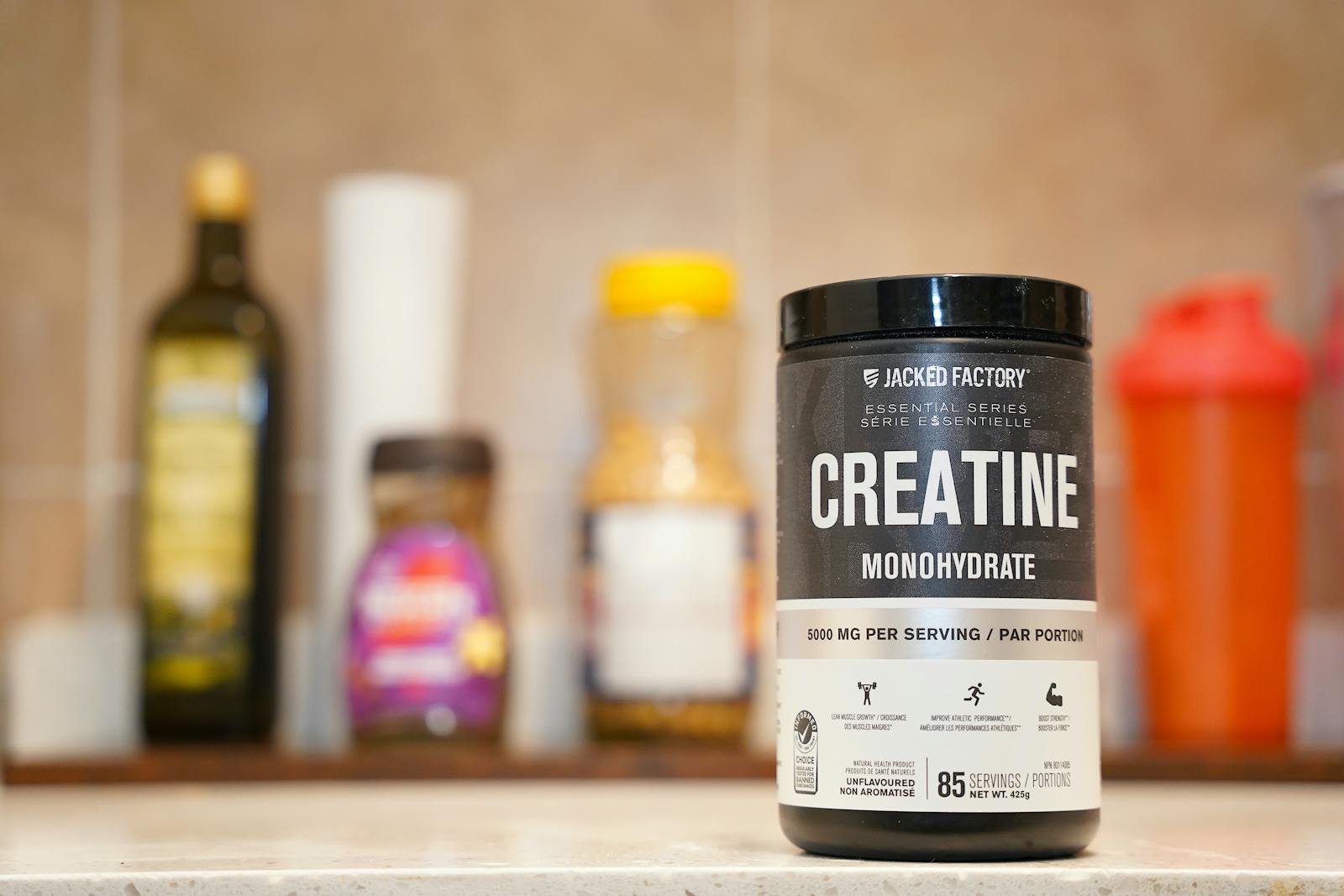Creatine: A Key Supplement for High-Intensity Performance
What Is Creatine?
Creatine is a naturally occurring compound found in foods like meat and fish and produced by the body from amino acids such as glycine, arginine, and methionine. The body synthesizes approximately 1–2 grams of creatine per day. While dietary sources provide some creatine, supplementation can increase muscle creatine stores by 10–40%, enhancing the ability to perform high-intensity activities by providing a quick energy source for muscles.
Recommended Dosage and Forms
The standard dose is 3–5 grams per day of creatine monohydrate, taken in either powder or pill form. Powder form can be mixed with water and is often preferred for ease of use and hydration purposes. Creatine monohydrate is the most widely used and researched form, known for its effectiveness and cost-efficiency.
Benefits and Considerations
Creatine supplementation is particularly beneficial for activities involving short bursts of high-intensity effort, such as sprinting, weightlifting, and jumping exercises. It’s less effective for endurance activities like long-distance running. When choosing a creatine supplement, opt for products that are third-party tested to ensure purity and quality.



